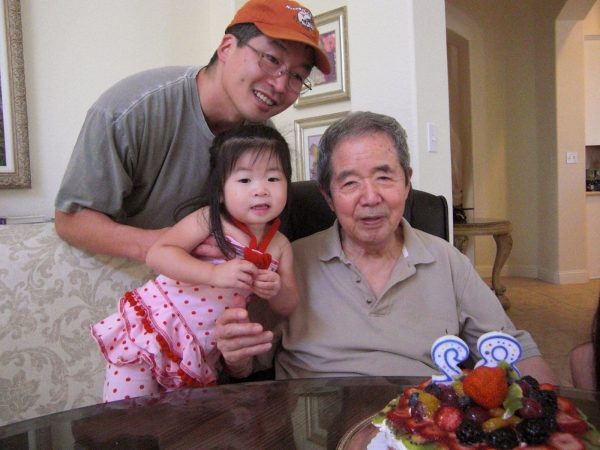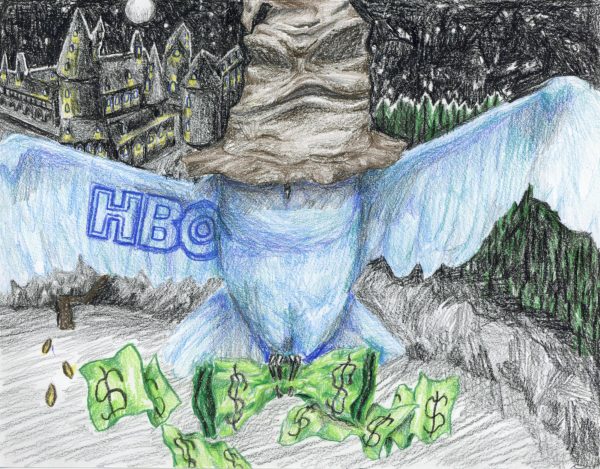Texas’ Image Problem
I’m a Texan.
I don’t ride a horse to school.
I don’t live on a big old ranch, with thousands of head of cattle roaming the land.
I have both electricity and running water in my house, and I don’t have country music blaring over the radio every waking minute of the day.
Yet, every time I leave the state, someone will ask me “Do you ride a horse to school?” or “Do you guys have the Internet down there?” It’s like they think Texas is some third world country.
To be honest, it annoys me. I’ve come to love living in Texas, more so than I loved living in California. There’s something about the people down here — everyone’s nice and friendly. You can walk down a street and say hello to nearly every stranger you see, and people won’t bat an eye, they’ll just mutter “howdy” right on back. Try doing that in New York or California and you’ll get some stares. People will think you’re up to something.
Texans are a proud people. They’re proud of their state and its history — especially the nine-year stretch when Texas was an independent republic. Many consider themselves to be Texans first and Americans second. I think some people outside the state find that to be a little weird. They’re uncomfortable with that sense of pride, because many of them don’t feel that way toward their home state.
I think a lot of people also think Texans are backwards. Now, the media does tend to show it as worse than it is, for they seldom discuss cities like Austin that are a haven for progressive ideals and values, but our politicians don’t do us any favors.
We have people like Rick Perry, Ted Cruz and George W. Bush representing us on a national stage — and they’re not making us look good. Cruz and Perry seem to be stuck in the 1950s and Bush — well, he’s just “Dubuyah.” The guy may be intelligent, but he had far too many “open mouth, insert foot” moments as president, and he makes Texans look far too simple minded.
When outsiders think of Texas politicians, they rarely think of Wendy Davis, Lyndon B. Johnson, Ann Richards, Barbara Jordan or Miriam “Ma” Ferguson. Davis took a stand against Texas’ unfair abortion law. Johnson oversaw the passing of the Civil Rights Act of 1964 and the Fair Deal. Richards was a progressive governor who reformed the school and prison system, and set into motion Texas’ economic growth. Ferguson was the second female governor in the United States in the ‘20s, right after women had become enfranchised. She fought against the Ku Klux Klan.
Texas either gets lumped together with the South or branded its own special kind of crazy, but that’s just not the case. Texas is unique. It cannot be classified as the South, nor can it be classified as the West, or Midwest, or Southwest. Texas is a unique blend of hundreds of different cultures and ethnic groups — from the Germans in Central Texas to the Vietnamese along the Gulf Coast.
You go out West toward El Paso, and the terrain is mountainous. It’s a desert. You could easily mistake it for New Mexico or Arizona. Some of the United States’ smallest counties are out there, and it’s true cattle country. In the region West of Big Bend, nearly all the counties are at least 40 percent Hispanic. If you were to follow the Rio Grande all the way until its mouth on the Gulf of Mexico, that’s one trend that is consistent. South Texas is Tejano country; it’s where the “Tex meets the Mex.” As the terrain changes, and it gets flatter, and rain actually falls frequently, it becomes the produce basket of Texas, where they grow artichokes and grapefruit.
East Texas is the exact opposite. It’s an extension of the Deep South in most places, an area where the Pine Trees stand tall over the little Baptist churches, and small towns dot the landscape. The racial demographics are a lot different out here — it’s a lot more black and white. The waves of immigration have not touched an area where, in some small cities and towns, they still believe the South “will rise again.” They speak like true Southerners, drawing out their words and speaking slowly in an accent that takes a while to get used to if you’ve never heard it spoken before, and they trace their heritage to the old antebellum plantations that ruled the land before the Civil War instead of the cowboys and ranchers and Germans that came to Texas in the mid 1800s.
Racial tensions are still high out there. After all, it can be said the last lynching in the United States happened in Jasper, a town of about 7,600 some 130 miles Northwest of Houston. It was here in 1998, that a black man named James Byrd Jr. was dragged behind a pickup truck for three miles on the asphalt roads outside of town by three men, two of whom had ties to the Klan.
That certainly hurt peoples’ views of the state, but it was an incident that occurred in a part of the state that still struggles with racism some 150 years after the Civil War concluded. And just to the south of it, you have Houston, on the Gulf Coast of Texas — home to the fourth-largest Vietnamese community in the United States, and the largest outside of California.
Racism is no more of a problem in Texas than it is in any other Southern state. In fact, in terms of hate crimes per 100,000 people, it’s not even in the top 10. But this stereotype lives on, and that annoys me to no end. Every now and then, when I’m visiting family in California, I’ll tell someone I’m from Texas, and they’ll ask me a series of questions. It usually consists of “do you hate black people?” Or “are you guys really racist?”
Making such an assertion is ignorant, and I’m tired of it. There are some states, mostly, if not all in the North, that have a holier than thou attitude when it comes to race relations, yet they have some of the most segregated cities in the United States according to statistics. Not only that, but it’s hypocritical. We tell people not to judge somebody based on their skin color, or place of origin, yet it’s OK to stereotype all Texans as some black-hating, racist, gun-toting rednecks?
Texas is more than that. Its people are more than that. It deserves better than to be known by its least common denominators. It deserves better than just being lumped together into a conglomeration of various stereotypes, many of which are outdated.
It deserves to be known for its cedar and oak-covered hills that line the Central part of the state and the unique heritage of the Germans who were some of its first settlers. It deserves to be know for the Dallas-Fort Worth metropolitan area, where so many Fortune 500 companies are headquartered. It deserves to be known for its advances in the technological field, and how it helped to power several generations of Americans as they commuted back and forth from work, trying to achieve their own version of the American Dream. It deserves to be known for some of its people, for the kind folk who inhabit every city of the state, and for the millionaires who made all their money in ranching and oil, and still live modestly in the same house they grew up in, drive old trucks and wear beat-up jeans and a t-shirt.
For that’s what America could use more of, for those are the lessons that Texas could teach the rest of the nation; how to maintain a sense of community, a sense of pride, and a sense of humility, no matter how much you are worth, what color you are, or what type of car you drive.





